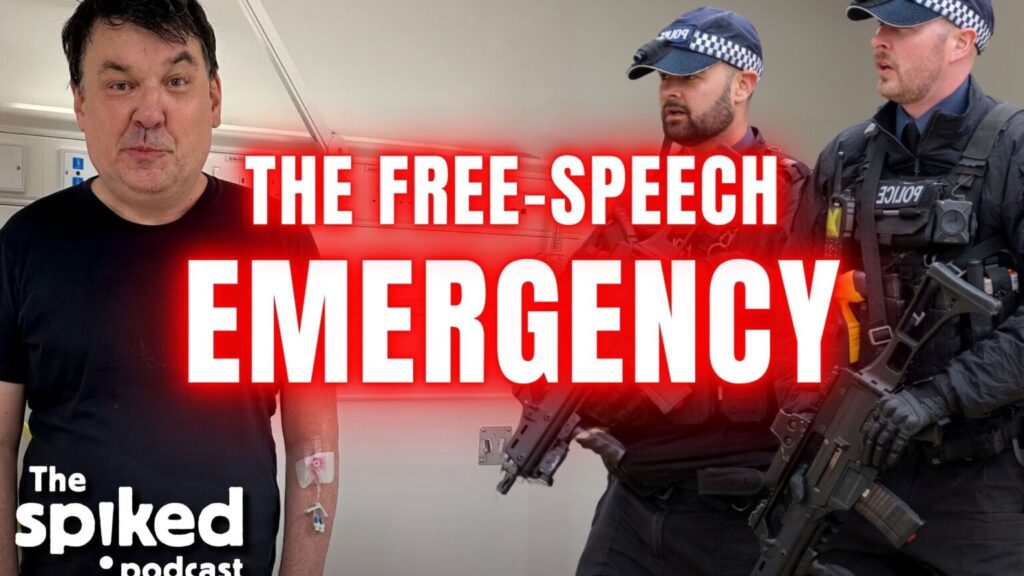
In a shocking turn of events, British writer and television producer Graham Linehan was arrested this week, igniting a fierce debate over free speech in the United Kingdom. Linehan, known for creating the popular sitcom “Father Ted,” has been a controversial figure due to his outspoken views on transgender issues. The arrest, which took place in London, has raised serious questions about the state of free expression in the country.
The incident has drawn widespread attention, as Linehan’s arrest is seen by many as a significant moment in the ongoing battle over free speech. Supporters argue that his detention represents a troubling trend of silencing dissenting voices, while critics maintain that his remarks have crossed the line into hate speech.
The Context of Linehan’s Arrest
The arrest of Graham Linehan comes amid a broader cultural and political clash in Britain. Over the past few years, debates surrounding transgender rights have intensified, with activists pushing for greater recognition and protection under the law. Linehan has been a vocal critic of certain aspects of the transgender rights movement, leading to accusations of transphobia.
According to sources, the arrest was related to Linehan’s social media activity, where he has been known to post inflammatory comments. The specifics of the charges have not been disclosed, but the situation has sparked a heated discussion about the boundaries of free speech and the role of social media platforms in moderating content.
Expert Opinions and Public Reactions
Legal experts and free speech advocates have weighed in on the implications of Linehan’s arrest. Some argue that the action taken against him sets a dangerous precedent, potentially stifling open discourse. Others believe that there must be a balance between protecting free speech and preventing harm.
“The arrest of Graham Linehan is a wake-up call for anyone concerned about free speech in the UK,” said Dr. Emily Carter, a professor of media law. “While it’s important to address hate speech, we must ensure that we do not infringe upon the fundamental right to express differing opinions.”
Public reaction has been mixed, with some expressing support for Linehan’s right to speak his mind, while others feel that his comments have been harmful and deserve scrutiny. The debate highlights the broader tensions in British society as it grapples with issues of identity, tolerance, and expression.
Historical Parallels and Current Implications
This development follows a series of high-profile cases in the UK where individuals have faced legal consequences for their speech. Comparisons are being drawn to past instances where free speech was challenged, such as the infamous “Twitter Joke Trial” in 2012, where a man was prosecuted for a tweet deemed threatening.
The move represents a critical juncture in the ongoing conversation about free speech in the digital age. As social media continues to play a central role in public discourse, the lines between acceptable expression and harmful rhetoric are increasingly blurred.
Looking Ahead: The Future of Free Speech in Britain
The arrest of Graham Linehan is likely to have lasting implications for the future of free speech in Britain. As the legal proceedings unfold, they will undoubtedly contribute to the broader discourse on how to balance freedom of expression with the need to protect individuals from harm.
Meanwhile, policymakers, activists, and citizens alike will be watching closely to see how this case develops and what it means for the rights of individuals to express controversial or unpopular opinions. The outcome could shape the landscape of free speech in the UK for years to come.
As Britain navigates this complex issue, the world will be watching to see how it reconciles the competing demands of free expression and social responsibility.







